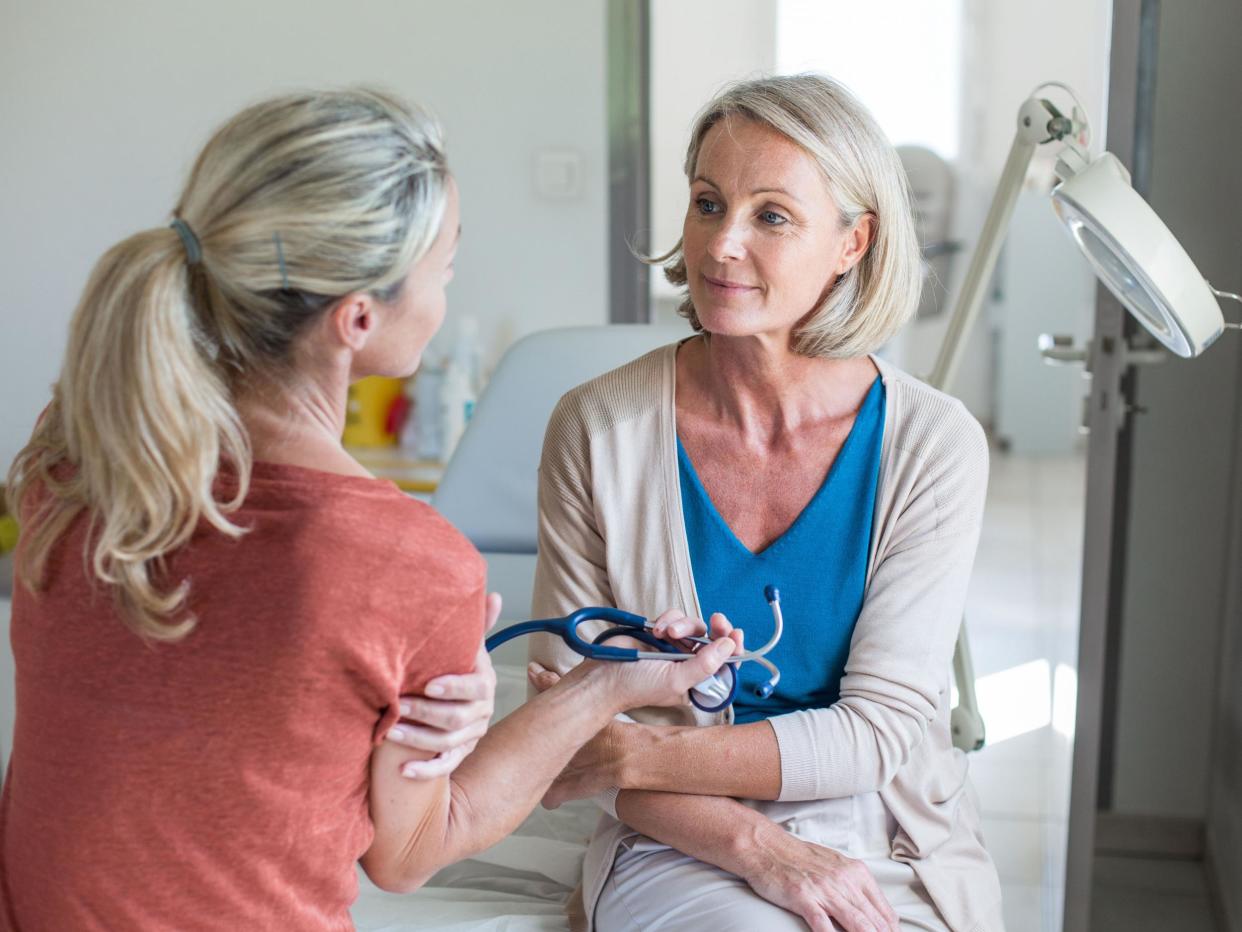Women feel freer to talk about menopause due to celebrities sharing their experiences, poll claims

Menopause is being discussed more than ever due to celebrities talking freely about their own experiences, a survey has claimed.
A poll of 2,000 women who were going through, or had recently gone through, menopause found almost nine in 10 believed it was now more acceptable to talk openly about “the change of life” than it was in the past.
Six in 10 said they happily talked to female friends about their experiences while almost half shared what they were going through with their partner.
Almost one in four respondents would open up to their female boss if they were struggling with menopause at work, while more than one in 20 would be happy to confide in a male manager.
But the survey found that while 81 per cent put the new willingness to open up down to “changing times”, 31 per cent thought it was due to high-profile women talking about their own experience.
Stars including new Radio 2 Breakfast Show host Zoe Ball, 47, TV presenter Davina McCall, 50, and 49-year-old Loose Women star Andrea McLean have all spoken out about menopause.
“A move to more open discussions about the menopause can only be positive," a spokesperson for Menopace said. ''For generations, the menopause has been something many women have felt they could not easily discuss openly with colleagues, or even their partner. But thanks to female stars talking about what they are going through so openly, this has made it much easier for all women to talk to friends, their partner and even their boss about what they are going through.”
They added: “The menopause is natural and something which will happen to all women, so it’s important to make it as easy as possible to talk about it in order for them to get the support that is available.”
Deborah Garlick, co-author of Menopause: The Change for the Better, said: “This is not a women’s issue, everyone needs to be able to talk about menopause and women need to feel comfortable asking for help if they need it. The easier and more normal we make it to talk about menopause, the better it is for everyone.”
But not everyone was happy to open up with more than one in 10 saying they still would not feel comfortable talking to their own partner about it.
Almost one in five would not confide in a colleague and 17 per cent did not feel like they could share it with their children. More than one in 10 even felt they could not talk to their doctor while one in five did not want to tell their boss.
The study found 21 per cent of women polled felt they did not have anyone at all they could talk to in complete comfort. Additionally, 14 per cent admitted their partner was not very supportive of them during menopause.
Researchers found the lack of support was important, with 28 per cent of women feeling like menopause affected their mental health, while another 34 per cent saw their physical health decline.
One in four turned to supplements to try and help them through it.
Ms Garlick added: “These are encouraging results but there is still a lot to do to help women (and men) talk about menopause with no stigma. But it is becoming less of a taboo."
SWNS

 Yahoo News
Yahoo News 
